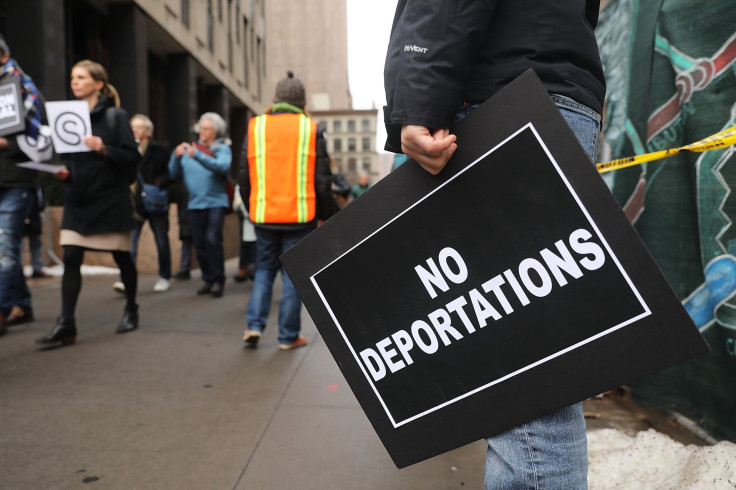Miguel Perez Jr Facts: Convicted Army Veteran Deported To Mexico

An army veteran, who was served two tours to Afghanistan before he was convicted on drug charges, was deported to Mexico Friday, media reports said over the weekend. The news was first confirmed by the U.S. Immigration and Customs Enforcement (ICE) to CNN.
Miguel Perez Jr. had his request for citizenship denied due to his felony drug conviction, wihich carried a sentence of 15 years in prison. Perez had lived in the U.S. as a legal permanent resident since age 11 but his green card was taken away after he was found guilty of delivering cocaine to an undercover police officer in 2008. His parents and a sister are naturalized U.S. citizens, and another sister is an American citizen by birth.
Sen. Tammy Duckworth (D-Illinois), who is an Iraq War veteran, criticized the handling of Perez's case.
“This case is a tragic example of what can happen when national immigration policies are based more in hate than on logic and ICE doesn’t feel accountable to anyone," Duckworth said in a statement on Saturday. "At the very least, Miguel should have been able to exhaust all of his legal options before being rushed out of the country under a shroud of secrecy. I am appalled that Secretary [Kirstjen] Nielsen did not respond to my personal appeal asking merely that she review Miguel's case and decide for herself whether deporting this brave combat Veteran was a good use of DHS’ limited resources."
Duckworth had sent a letter to Nielsen asking for the administration to review the case.
This is pure BS! Please spread the word!
— Indivisible Network 🇺🇦 (@IndivisibleNet) March 2, 2018
Miguel Perez Jr. returned to Chicago after fighting in Afghanistan following the 9/11 terrorist attacks. Now, he's waiting to be deported, and has started a hunger strike hoping to bring awareness to his fight. pic.twitter.com/3ebshzdXEP
Deporta EU a mexicano veterano de guerra en Afganistán
— Marquesina.mx (@marquesinap) March 25, 2018
Miguel Pérez Jr., un residente legal y veterano del ejército de Estados Unidos, quien cumplió dos periodos como soldado en Afganistán, fue deportado a México, tras luchar más de un año para imped ...https://t.co/lyBHBvzxX2 pic.twitter.com/qfjNliJvui
Perez served in the U.S. Army from 2001 to 2004 and left with a general discharge after he was caught smoking marijuana on base. After he returned from Afghanistan in 2004, he was diagnosed with post-traumatic stress disorder. He also may have had a traumatic brain injury.
“After the second tour, there was more alcohol and that was also when I tried some drugs,” Perez reportedly said last month. “But the addiction really started after I got back to Chicago, when I got back home, because I did not feel very sociable.”
Perez said he believed that enlisting in the Army would automatically give him U.S. citizenship but later learnt that he was not an American citizen after he found himself in ICE detention. Earlier this month, his retroactive application for citizenship was denied, because he did not show “good moral character.”
In an email to NBC News, Perez's lawyer, Chris Bergen, said Perez was left with nothing more than his orange prison uniform and had no money.
"He was dumped in one of the most dangerous areas of the Mexican border," Bergen said. "We will continue to fight his case and appeal his citizenship denial."
© Copyright IBTimes 2025. All rights reserved.





















